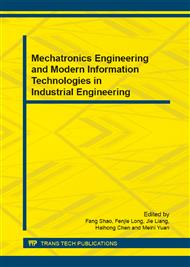p.1419
p.1423
p.1427
p.1431
p.1436
p.1440
p.1444
p.1448
p.1452
The Application of Fuzzy Comprehensive Evaluation in Meteorological Mutation Identification of Load Forecasting
Abstract:
This paper studied the application of fuzzy comprehensive evaluation in meteorological mutation identification of load forecasting. It measured out a specific algorithm in meteorological mutation identification of ultra-short-term load forecasting, so that to improve the load forecasting accuracy and reduce the relative error. When using the fuzzy comprehensive evaluation method, set the membership function and factor right based on the characteristics of a province for the summer weather factors, and measure the mutation membership value with the appropriate operator, which can provide a reference for the study of meteorology identification. The result shows that using fuzzy comprehensive evaluation to identify meteorological mutation has good usability and accuracy.
Info:
Periodical:
Pages:
1436-1439
Citation:
Online since:
January 2015
Authors:
Price:
Сopyright:
© 2015 Trans Tech Publications Ltd. All Rights Reserved
Share:
Citation:


